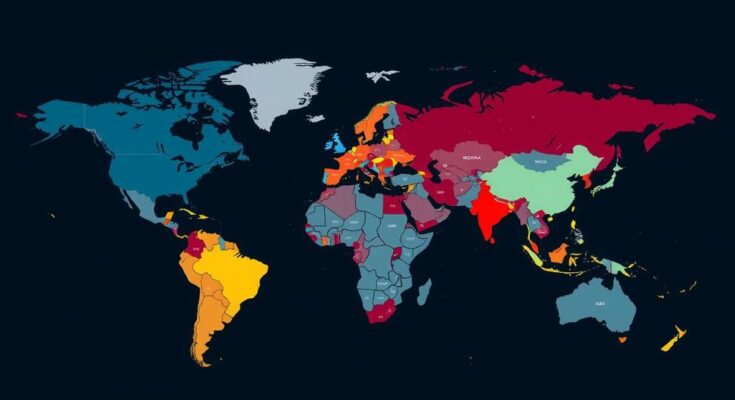In 2024, South Korea leads as the most advanced country in technology, followed closely by the United States and Denmark. The assessment, supported by Global Finance Magazine, considers factors such as internet access, GDP allocation for research, and overall innovation capacity. This overview highlights the significance of government support, education, and collaboration in shaping these countries’ technological landscapes.
In 2024, the landscape of global technological advancement showcases 12 nations recognized for their distinctive strengths and commitment to innovation. Topping the list is South Korea, distinguished by its robust internet infrastructure and leading position in research and development. Following South Korea are the United States and Denmark, reflecting the significance of governmental investment and a culture of collaboration in scientific exploration. Ranking these countries involves thorough analysis of various metrics, such as internet access, innovative capacity, and GDP allocation for research.
1. South Korea is celebrated for its unparalleled technological progress, with significant investments from both the government and major corporations. The tech-savvy populace drives demand for advancements in artificial intelligence and robotics, showcasing companies like Samsung and LG as exemplars of technological prowess.
2. The United States, renowned for its legacy of scientific discovery, continues to lead through substantial investment in research and development. Pioneering institutions like MIT and Stanford strengthen the country’s capacity to foster innovation, giving rise to influential companies like Apple and Google.
3. Denmark emerges as a frontrunner in areas such as green energy and biotechnology. Its educational system prioritizes collaboration and innovation, supporting firms like Vestas in wind energy production and fostering a tech-friendly environment.
4. Switzerland boasts a solid foundation in scientific research and education, marked by world-class institutions like ETH Zurich. The country encourages entrepreneurship and development through government initiatives that nurture a culture of innovation.
5. Israel excels in technology through its focus on security and resource management. The nation’s advancements in sectors such as cybersecurity and agri-tech illustrate its ability to respond to challenges with innovative solutions, bolstered by vibrant startup culture.
6. Finland, known for its high-ranking education system, leads in telecommunications and clean energy. The Finnish population’s emphasis on technical expertise underpins its status as a center for technological innovation.
7. The Netherlands thrives on creativity and education, housing influential companies like ASML in the semiconductor industry. The nation’s trade-connected history has fostered collaboration and entrepreneurship in technology.
8. Sweden’s commitment to education and sustainability is evident in companies such as Spotify and Ericsson. This supportive innovation culture drives significant advancements in digital infrastructure and green technologies.
9. Norway prioritizes sustainability through investments in renewable energy, showcasing its capabilities in ocean industries and electric vehicle adoption. Strong social policies support a skilled workforce dedicated to technology.
10. Singapore focuses on technology and education to maintain global competitiveness. The government’s substantial investment in research facilitates advancements across biotech, AI, and fintech sectors, promoting a culture of lifelong learning.
11. The United Kingdom has made strides in biotechnology and artificial intelligence, with companies like AstraZeneca and DeepMind leading significant developments. Innovations in various technologies reflect the country’s commitment to technological progress.
12. Belgium is gradually establishing itself as a competitor in technology through investments in sectors like cybersecurity and AI. Collaborative efforts among local companies and the government signal a promising future for technological advancement.
These nations exemplify a shared commitment to fostering innovation and technological growth. Their investment in research and education, combined with collaboration between the public and private sectors, positions them as leaders in the global technological arena.
As we advance into 2024, the role of technology plays a pivotal role in addressing societal needs and enhancing global cooperation. The rankings presented are derived from comprehensive analyses conducted by Global Finance Magazine, factoring in internet usage, research investment, and the collaborative spirit necessary for technological breakthroughs. By evaluating these countries, we can discern how their unique strengths contribute to progress in innovation.
The collective commitment of the identified nations towards innovation, coupled with their strategic investments in education and technology, elucidates a positive trajectory in global technological advancement. The competition among these countries highlights the essence of collaboration, whereby each contributes to the broader tech landscape, ultimately enhancing the quality of life for their citizens. As these examples illustrate, ongoing investment in knowledge and sustainable practices will remain critical in positioning nations at the forefront of technological progress.
Original Source: www.worldatlas.com




